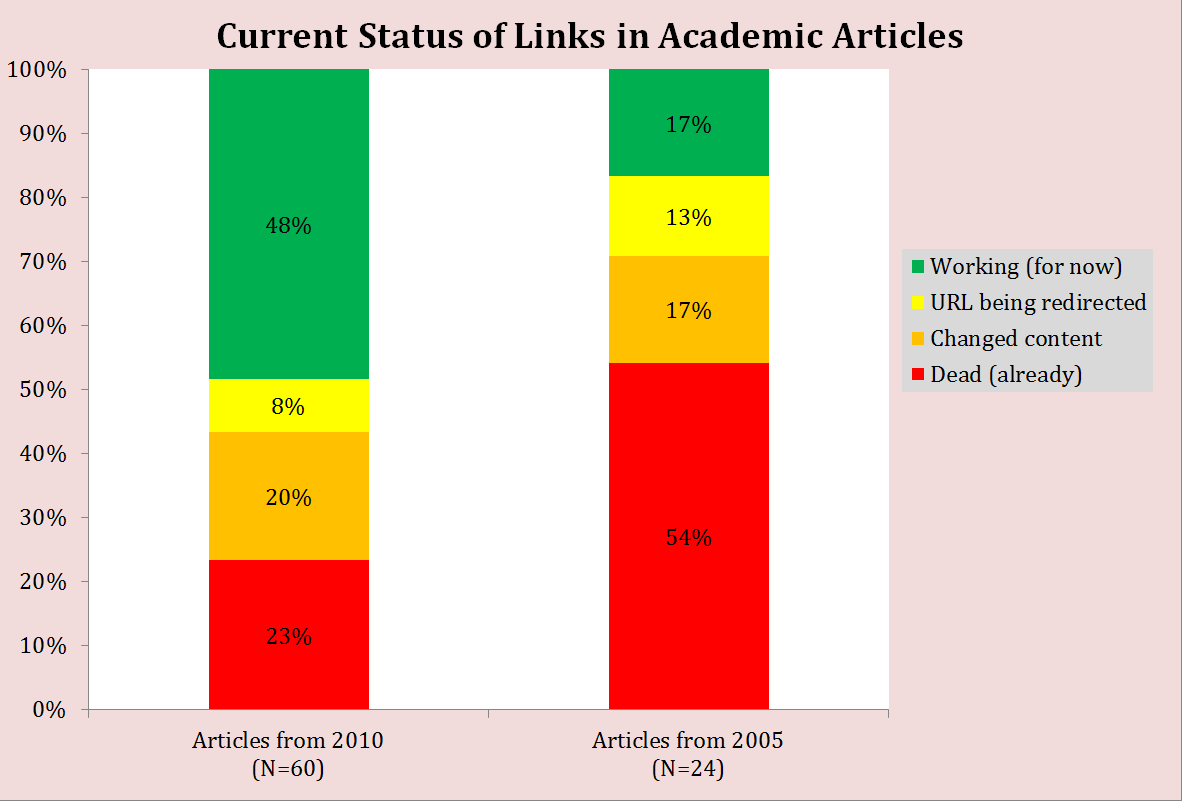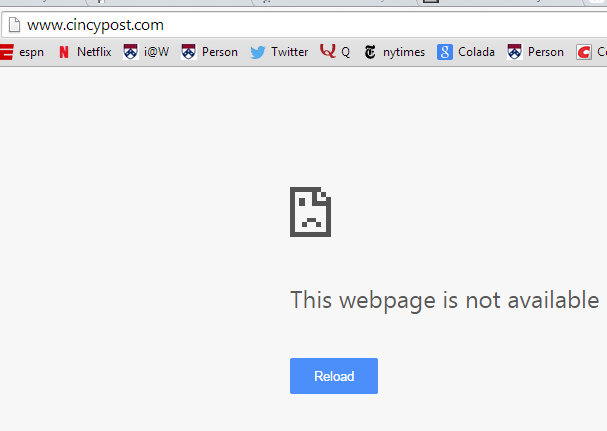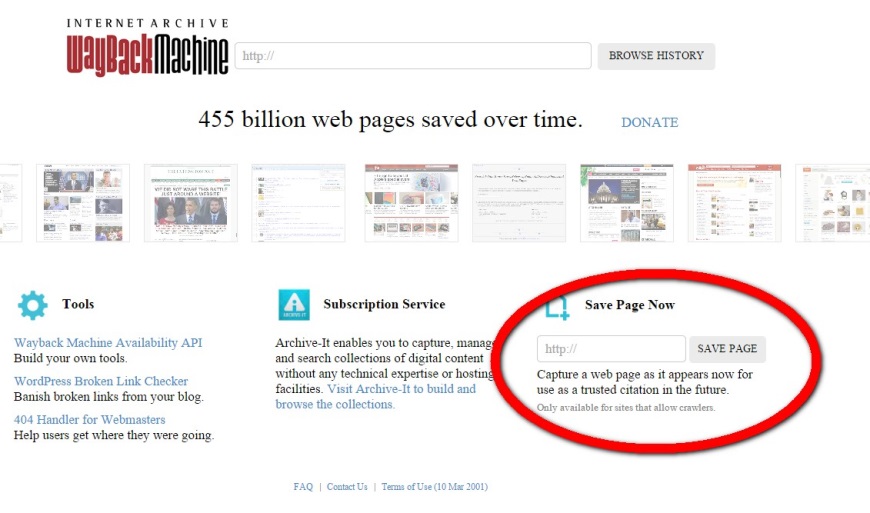If you are like me, from time to time your papers include links to online references.
Because the internet changes so often, by the time readers follow those links, who knows if the cited content will still be there.
This blogpost shares a simple way to ensure your links live “forever.” I got the idea from a recent New Yorker article [.html].
Content Rot
It is estimated that about 20%-30% of links referenced in papers are already dead and, like you and me, the remaining links aren’t getting any younger. [1]
I asked a research assistant to follow links in papers published in April of 2005 and April 2010 across four journals, to get a sense of what happens to links 5 and 10 years out. [2]
Perusing results I noticed that:
- Links still alive tend to involve individual newspaper articles (these will die when that newspaper shuts down) and .pdf articles hosted in university servers (these will die when faculty move on to other institutions).
- Links to pages whose information has changed involved things like websites with financial information for 2009 (now reporting 2014 data), or working papers now replaced with updated or published versions.
- Dead links tended to involve websites by faculty and students now at different institutions, and now-defunct online organizations.
If you intend to give future readers access to the information you are accessing today, providing links seems like a terrible way to do that.
Solution
Making links “permanent” is actually easy. It involves saving the referenced material on WebArchive.org, a repository that saves individual internet pages “forever.”
Here is an example. The Cincinnati Post was a newspaper that started in 1881 and shut down in 2007. The newspaper had a website (www.cincypost.com). If you visit it today, your browser will show this:
The browser will show the same result if we follow any link to any story ever published by that newspaper.
Using the WebArchive, however, we can still read the subset of stories that were archived, for example, this October 2007 story on a fundraising event by then president George W. Bush (.html)
How to make your links “permanent”
1) Go to http://archive.org/web
2) Enter the URL of interest into the “Save Page Now” box
Copy paste the resulting permanent link onto your paper
Example
Imagine writing an academic article in which you want to cite, say, Colada[33] “The Effect Size Does not Exist”. The URL is https://datacolada.org/2015/02/09/33-the-effect-size-does-not-exist/
You could include that link in your paper, but eventually DataColada will die, and so will the content you are linking to. Someone reading your peer-reviewed Colada takedown in ninety years will have no way of knowing what you were talking about. But, if you copy-paste that URL into the WebArchive, you will save the post, and get a permanent link like this:
Done. Your readers can read Colada[33] long after DataColada.org is 6-feet-under.
PS: Note that WebArchive links include the original link. Were the original material to outlive WebArchive, readers could still see it. Archiving is a weakly dominating strategy.
![]()



